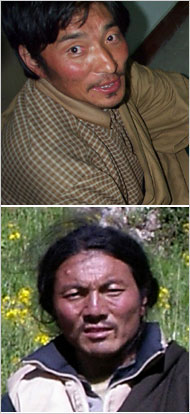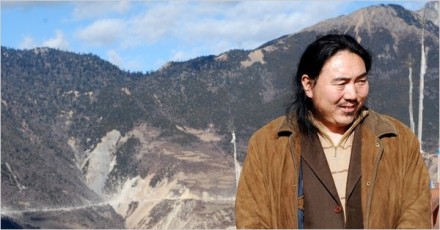Dharamshala: Karma Samdrup, a prominent Tibetan environmental philanthropist’s complaint against police officials for repeatedly torturing him to extract confession for an offense that he vehemently denied of committing, is a test case for China’s new regulations on halting evidence obtained illegally through torture, a US-based rights group said.
Karma Samdrup was arrested from his home in Sichuan Province in January on alleged charges of buying artifacts from a looted tomb in 1998. According to his lawyer, Pu Zhiqiang, those charges were dropped after the police realised that he had a license to buy and sell cultural relics.

His arrest came following his attempts to defend his two younger brothers, Rinchen Samdrup and Chime Namgyal, who are in jail since August 2009 for accusing a police official in Chamdo Prefecture of illegal poaching. “By jumping to his brothers’ defense, Karma Samdrup apparently angered some powerful people,” The New York Times reported.
Relatives say Namgyal was tortured and then sentenced to 21 months at a labour camp for “harming national security.” Rinchen Samdrup, who has also been lauded by the Chinese media in the past, is still awaiting trial on several charges, including having set up the environmental group illegally.
During his ongoing trial in Xinjiang Uighur Autonomous Region on 22 June, Karma Samdrup said that during several months of interrogation, officers repeatedly beat him, ordered fellow detainees to beat him, deprived him of sleep for days on end, and drugged him with a substance that made his eyes and ears bleed – all to extract a confession, Human Rights Watch (HRW) said.
He has nonetheless refused to sign a self-incriminating statement and has entered a plea of not guilty. “Karma Samdrup’s trial was a test case for the government’s commitment to halting torture of criminal suspects in custody to prevent miscarriages of justice,” the rights group said.
According to the new regulation issued jointly by China’s Supreme People’s Court, Supreme People’s Procuratorate, Ministry of Public Security, Ministry of State Security and Ministry of Justice on 30 May, “confessions or testimony obtained through torture, violence and intimidation are invalid”. The rules give “defendants the ability to challenge confessions presented during their trials”.
“The rules were unlikely to make a difference unless they were accompanied by significant reforms such as granting the right to silence to protect suspects from self-incrimination, effective remedies in instances of violations of the right of the defense, and prosecution of law enforcement agents guilty of having tortured criminal suspects,” HRW said.
“Karma Samdrup’s trial is an important test case for the Chinese government’s stance towards torture,” said Sophie Richardson, HRW’s Asia advocacy director. “If the government doesn’t investigate torture allegations in a manifestly trumped-up case, what hope can ordinary defendants have?”
The detention, arrest and torture of the three Tibetan environmentalists on false charges violate articles 9 and 41 of the Chinese Constitution, according to Mr Tenzin Norbu, the executive head of the Environment and Development Desk of the Central Tibetan Administration based in Dharamsala.
The Article 9 stipulates that “…the state ensures use of natural resources and protects rare animals and plants. Appropriation or damaging of natural resources by any organisation or individual by whatever means is prohibited.
In the Article 41, it states, “Citizens have the right to criticise and make suggestions to any state organ or functionary. Citizens have the right to make to relevant state organs complaints and charges against, or exposures of, violation of the law or dereliction of duty by any state organ or functionary; but fabrication or distortion of facts with the intention of libel or frame-up is prohibited. In case of complaints, charges or exposures made by citizens, the state organ concerned must deal with them in a responsible manner after ascertaining the facts. No one may suppress such complaints, charges and exposures, or retaliate against the citizens making them. Citizens who have suffered losses, through infringement of their civil rights by any state organ or functionary have the right to compensation.”

